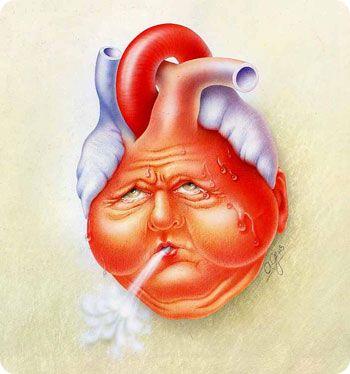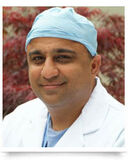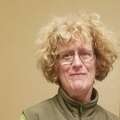“What Symptoms & Echocardiogram Readings Determine Heart Failure?” Asks Jesse
By Adam Pick on January 18, 2013
I just received an interesting email from Jesse regarding mitral regurgitation, heart failure and echocardiograms.
Jesse writes to me, “Hi Adam – I recently learned that I suffer from severe mitral regurgitation. While I was diagnosed with a heart murmur many years ago, it appears the disease progressed quickly. I haven’t had an echo for a few years and I’m now short of breath constantly. My cardiologist used the term ‘heart failure’ during my last appointment. I’m curious to know what echocardiogram readings determine that I am approaching heart failure? I’m looking at an echocardiogram print-out and do not understand any of the numbers in front of me. Or, is heart failure diagnosed just by my symptoms? Can you help me?”

I wanted to provide Jesse an expert response, so I contacted Doctor Hiroo Takayama from NewYork-Presbyterian Hospital in New York. So you know, Dr. Takayama is an assistant professor of surgery and recent recipient of 2012 the Dwight C. McGoon Award for educating and mentoring cardiac surgery physicians in training. Heart failure is one of Dr. Takyama’s specialties.

Dr. Hiroo Takayama – Heart Surgeon
In his response to Jesse’s questions, Dr. Takayama noted:
Your valve disease can lead you to a diagnosis of ‘heart failure’. For instance, severe mitral regurgitation will cause congestion of the lungs and cause various symptoms such as short of breath and/or decreased tolerance of exercise. This usually correlates with findings on echocardiogram such as dilatation of the chamber size of the left ventricle and decreased function of the left ventricle. A clinician uses the term ‘heart failure’ once a patient develops these symptoms and/or echo findings — often both.
Dr. Takayama continued to address the echocardiogram readings for evaluating heart failure:
In reviewing the result of an echocardiogram for mitral regurgitation with suspected ‘heart failure’, several important points are: severity of mitral regurgitation, ejection fraction (or EF) of the left ventricle, and size of the left ventricle. In general, surgery is not indicated unless your mitral regurgitation is ‘severe’. The ejection will be decreased compared to a normal value if you have heart failure. The size of the left ventricle is represented by two numbers: left ventricular end-diastolic diameter (or LVEDD) and left ventricular end-systolic diameter (LVESD). Either or both will be increased in heart failure.
Here is a great educational video for patients from Dr. Takayama about valve disease, decreased heart function and cardiac surgery.
I realize your echocardiogram readings are technical and often confusing. However, I wanted to thank Jesse for raising these very important questions. I would also like to thank Dr. Hiroo Takayama for taking the time to share his clinical experience and research with our community. To learn more about Dr. Takayama, click here.
Keep on tickin!
Adam
|
Joy Osgood says on February 2nd, 2013 at 9:53 pm |
|
Hi…After years of my Dr telling me I had a heart murmur, she sent me to cardiologist, Dr Kevin Miller, who is now associated with the Oklahoma Heart Hospital – South. Seems like for 10, maybe 15 years, he would run echograms, ultra sounds, etc. In Nov, 2011, he said he wanted me to meet him at the hospital for a TEE test and BTW, DON’T LEAVE THE COUNTRY! We were scheduled for our very first cruise in just a few weeks! After the TEE test he sent me to heart surgeon Dr Raikar, also of the OHH – S. We met with Dr Raikar with in the week and the next week, Nov 18, 2011, I was having open heart surgery to replace my aortic valve. FOUR days later I woke up to discover he not only replaced my aortic valve with a hybrid, half pig and half horse, but repaired 2 other valves. After surgery my lungs would not re-inflat, which was why they let me sleep 4 days. My husband just said they did something to cleanse my lungs and the next morning woke me up. The pain was not too awful until I started coughing. My new friend, Mr Sir-Cough Alot, a stuffed bear, was to be with me constantly. Dec 4, 2011, I went home to recover. I had been tired so long, I expected immediate results. My home health nurses and everyone told “it takes time, be patient!”. 2012 is a blur to me. On Dec 11, 2012, I went to ER at OHH – S, and Dr Miller admitted me. Dec 13, 2012, I got a pacemaker to go with my new valve. Jan 24, 2013, I had a consult with my surgeon, Dr Raikar, who has been doing this type of surgery 17 years and has had 2 he had to replace the 2nd time. I may be his 3rd and it scares me! The valve has deteriorated to a 1.3, which is not enough to do surgery now. He hopes the pacemaker will help and I do feel better, but still have days I can’t get out of bed. I am over weight and trying hard to eat better and get as much exercise as I can. I hate to be on another wait and see watch. Any suggestions? Joy |
 |













